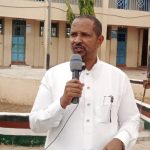Rather than the absence of violent conflict, we can compare peacefulness to bodily homeostasis, with different organs functioning optimally. Functional healthcare systems constitute an integral aspect of this ‘peace homoeostasis’.
Peaceful communities exhibit high levels of human capital, a sound business environment, equity, low corruption, and the free flow of information. Robust healthcare systems are critical for high levels of human capital. We cannot attain meaningful peace without solid healthcare systems.
Conflict and weak healthcare systems are intricately related. Conflicts strain available healthcare services. Ordinarily, injuries, rape, and fatalities occur during armed conflicts. On the other hand, weak healthcare systems can lead to disputes. Dysfunctions in healthcare delivery widen the inequality gap. Populations in penury are more likely to take up combatant roles and escalate conflict.
Healthcare systems that exclude populations in the lower segments of the social ladder often upset social functioning. An upset social order is a catalyst for strife and the escalation of violence. Widened gaps between social groups are a potential source of conflict.
Sick populations are unproductive populations, and unproductive populations are poor populations. While poverty does not lead to conflicts and crime, poverty-stricken populations are more likely to fuel strife. Armed groups efficiently recruit poor young people and offer an abundant supply of combatants to paramilitary groups.
Healthy populations drive development. A community needs a healthy workforce for optimum productivity. Good health frees up resources that would otherwise be used for treatment. Healthy people will efficiently channel resources for productive uses such as education and investment.
In our country, we have seen numerous cases of individuals having to sell family belongings, including land and livestock, to meet the health expenses of family members. There have also been instances where people have lost livelihoods on account of deteriorating health.
Sound healthcare systems are both preventive and curative. Studies have shown that preventive healthcare is more cost-effective than curative healthcare. Curative healthcare requires more investment in infrastructure, human resources, and health financing systems.
A sound healthcare system comprises functional drug and substance abuse treatment and rehabilitation, among other components. Effective drug and substance abuse treatment and rehabilitation reduce crime and conflicts. Organized crime and other vices easily lure young people hooked to drugs and substances, propagating strife in the community.
When a healthcare system strongly responds to people’s healthcare needs, people trust their governors more. Trust in institutions of governance is critical in fostering harmony. The population must trust those charged with governing them.
According to Dr. Tedros Adhanom, the WHO director, peace cannot exist without health, and health is unattainable without peace. The Institute for Economics and Peace, a global think tank, includes health in the Human Capital Pillar as one of the prerequisites for positive peace.
Governments are mandated to provide healthcare services. However, other stakeholders have a role to play. The private sector, faith communities, non-profits, and other actors can significantly strengthen healthcare systems alongside governments and public institutions.
Rotary International works for a more peaceful world through various interventions, including healthcare services. One of Rotary’s areas of focus is maternal and child health. In Kenya, Rotary International operates under Rotary District 9212, which includes Eritrea, Ethiopia, and South Sudan. In the district, different clubs have various programs to improve healthcare systems. For example, the Rotary Club of Nakuru has a project dubbed Project 6T on training healthcare workers to enhance the quality of services provided to mothers and their children.
To achieve meaningful peace, we need to invest in strengthened healthcare systems. Robust healthcare systems lead to equity, economic growth, development from more productive workforces, and trust in public institutions. Conflicts weaken healthcare delivery systems. Weakened healthcare delivery systems cause conflicts.
Governments, global actors, community-led organizations, and other stakeholders are called upon to consider investing in healthcare to achieve peace. Without efficient and effective healthcare systems, peace will remain a mirage.
Richie Olaka is a Rotary Peace Fellow and a Positive Peace Activator with the Institute for Economics and Peace. (Olakarichie@gmail.com)





